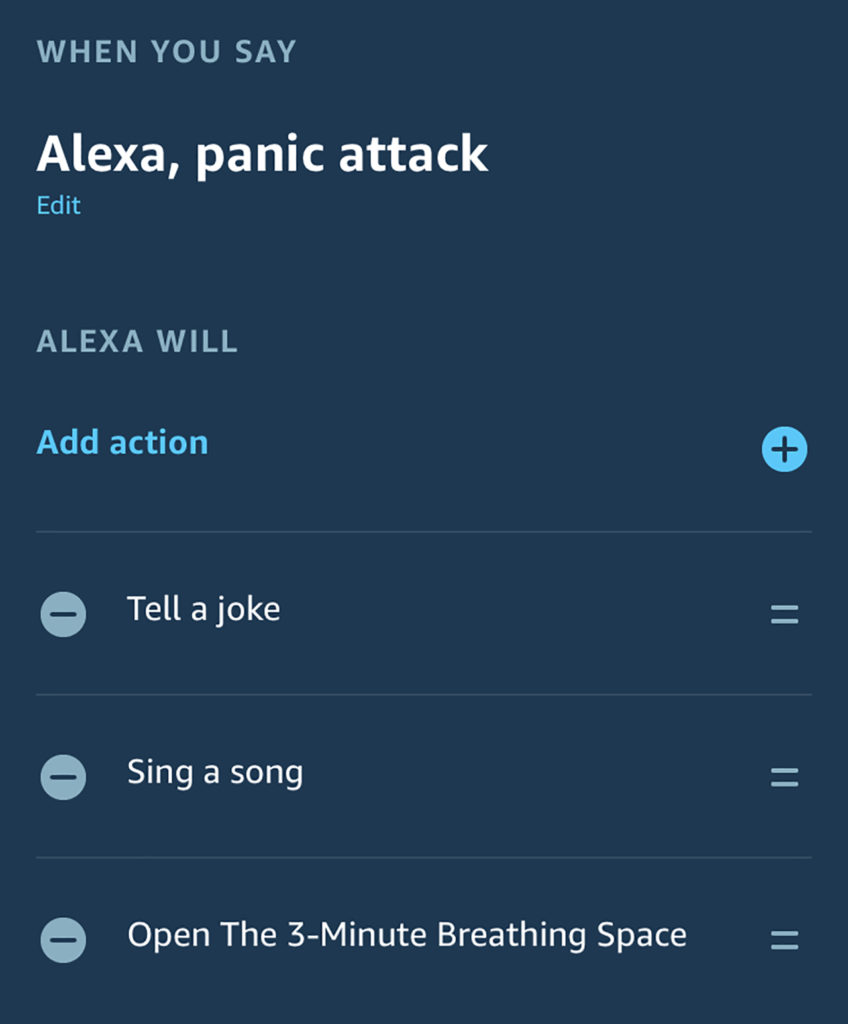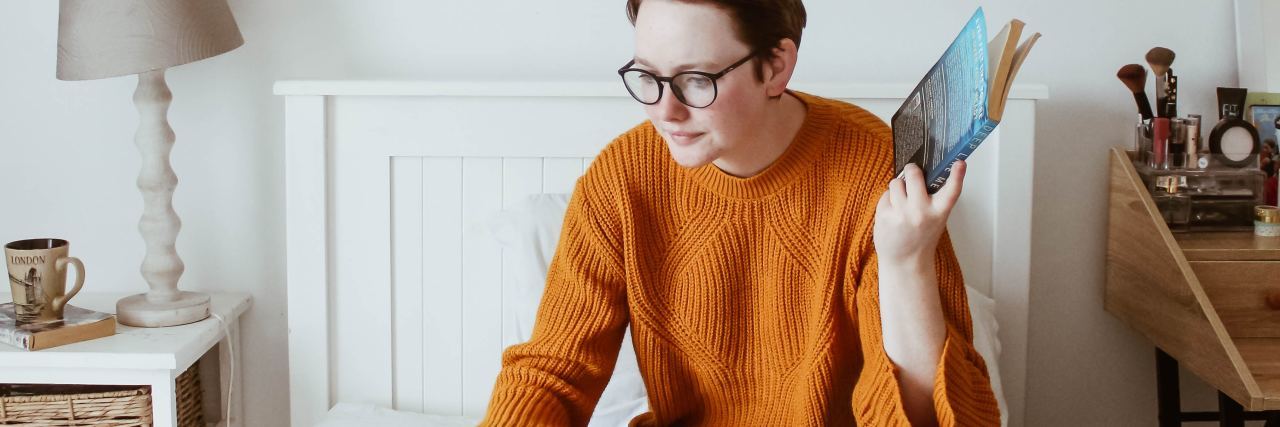There are now a variety of smart devices on the market, and many of them have a fairly low cost. I recently purchased the Amazon Echo Dot for only $30. As I was discovering the features, I realized how much it could help me with my mental health. Whether you get the Amazon Echo, Google Home or another smart device, they can typically do many of the same things. Here are some of the ways smart technology is helping me with my mental health, and other ways it may help you with your health including other chronic conditions.
1. Medication reminders.
Use your device’s reminder setting to set a daily reminder to take your pills. You can set multiple reminders throughout the day, whenever you need to take them. This is an especially great feature for those of us who have difficulty keeping track of all our meds or have difficulties with memory.
2. Calendar reminders.
Similar to medication reminders, your device can be set to remind you of upcoming events and appointments. Particularly, in this case, it could be a great way to remind you of your appointments with your doctor, therapist, etc.
3. Humor.
A quirky feature of many of these types of devices is that you can ask them to “tell a joke.” Even if the joke isn’t that great (although some are actually pretty funny), it can serve as a nice distraction during difficult moments. It can also be fun to experiment with your device as to any hidden jokes or easter eggs such as quotes from shows, technology-specific jokes and so on.
4. Set responses.
The Echo Dot has a feature called “routines,” where you can program it to respond to specific prompts with a desired response or series of responses. This is extremely handy! Again, other devices likely have a similar option. I programmed it to respond to “Alexa, I’m depressed/panic attack/anxiety attack.” If I say one of those things, a series of responses occurs including Alexa telling me a joke, saying an interesting fact or doing something silly, and lastly, starting a meditation or breathing exercise. It’s such a great feature, especially during a moment where it can be difficult to remember coping skills.

5. Health.
My Echo Dot is connected to my Fitbit, which I can use to ask it a variety of health-related questions. One of the more interesting questions is how I slept, which can be valuable information in regards to mood. As technology continues to improve, the ways it can directly help us with our health will only expand.
6. Loneliness.
While talking to a robot isn’t a long-term solution, it can be something to distract yourself with during a low period. The Echo Dot has a conversation mode, and other devices likely have something similar. It can be cool to try out, and you often learn neat facts and hear some jokes. Additionally, many of these devices can read region-specific news to you, which may help you to feel more connected to your community. Of course, you can use many of these devices to make an actual telephone call if it’s connected to your cell, so that’s an option too.
7. Lights.
I have yet to use this feature as I haven’t had the finances to set this all up, but I’ve dreamed of ways this could be helpful.
- Waking up: With depression often comes difficulty with mornings. Having a smart light set to turn on when I awake could add some additional motivation to my morning.
- Bedtime: Conversely, getting myself to bed is a struggle. These lights can be set to dim and turn off at certain times, which could serve as an additional nudge toward my bed.
- Energy: While getting up to turn on or off a light might not use a lot of energy for some people, for others, doing so can use up their daily “spoons.”
8. Other devices.
There are many other ways to make your day easier with a variety of smart devices, of course, though all of these come with a cost. While we don’t quite have Star Trek replicators, there are plenty of handy inventions. Some of these include smart coffee makers, thermometers, door locks, car starters/finders, vacuums and more. While not all will have a direct relation to mental or physical health, they may be connected in surprising ways.
As you can see, there are many ways I have discovered that smart technology can assist with my mental health, and I’m sure they extend to other folks’ needs as well. As I continue to use these devices, I hope to learn more ways of taking advantage of them for my health.
Do you use any technology to help you with your daily health? Please share in the comments. If you enjoyed this article, please take a moment to check out some of my other articles here on The Mighty. If you’d like to follow along with my journey, you can find me on Instagram as @mentalhealthyxe.
Photo by Sincerely Media on Unsplash

